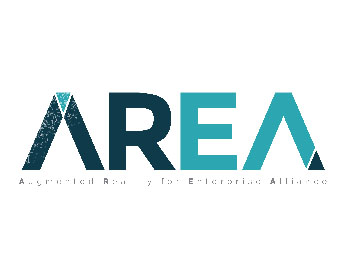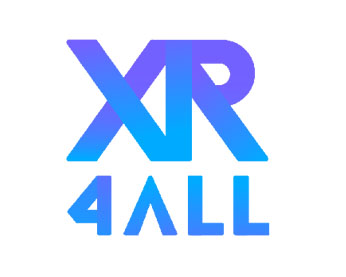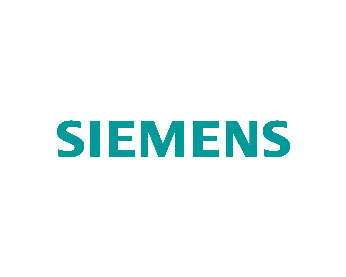The Joint AREA-ETSI-XR4ALL Workshop “Engineering XR for the Future: Frameworks, Requirements and Future Research” – initially scheduled as an in-person workshop on 5-6 March in Munich has been cancelled.
In view of the global COVID-19 situation and the related restrictions, the Programme Committee reformated the event into online sessions around two tracks:
- one focused on standards and interoperability
- and one on a research agenda for XR
Programme:
The programme and information about the online sessions, and online content is available under the tabs: Standards and Interoperability Track and Research Agenda Track . Additional online content in a variety of formats may become available over time.
Standards and Interoperability Track:
This track focused on relevant standards for XR - existing and under development - and interoperability - principles and frameworks, how to design for it and best ways to reap its benefits. Interoperability is the ability for different information technology components, systems and software applications to communicate and exchange data. The exchange of data permits the users to visualize in context the information that has been exchanged between systems of different providers without translation, conversion or delays. Interoperability is one of the prerequisites for scalability in a diverse and healthy technology ecosystem.
Research Agenda Track:
In this track, participants collaborated on a new industry research agenda that will shape the direction and funding of research projects in XR in Europe for the next decade. A research agenda is a strategic plan which guides researchers and those who support research through funding. The interactive sessions gave the opportunity to continue the process of identifying the most pressing areas for future research in XR as expressed by participants and assess their availability and capacity to support and/or conduct projects in new research domains.
The online sessions were of particular interest to:
- engineers, researchers and business analysts supporting XR deployments,
- XR experience and technology developers,
- solution providers,
- network service providers,
- standards organizations and government agencies.
Participants of the online sessions
- benefited from unprecedented insights into the use of open and interoperable interfaces and components to ensure that AR and XR technologies will scale up and impact every industry in the next decade,
- were given the opportunity to help shape the research agenda that will drive the direction and funding of research projects in XR in Europe for the next decade.
Participants learnt about the ETSI AR Framework and how to develop clear interoperability requirements which, if/when will improve their ability to integrate AR into their business and shorten Return on Investment. The event objective was also to give Standards Development Organizations a more detailed understanding of the customer requirements and, based on those, be able to evaluate if/how their organizations can reduce barriers to AR interoperability. Participants could contribute and prioritize the most pressing challenges facing their expansion of XR. By sharing their vision and the obstacles for a bright and open future for XR with others during the online sessions, participants had the opportunity to help shape the strategic plan for future public XR research funding in Europe.
About AREA
The Augmented Reality for Enterprise Alliance (AREA) is the only global, member-driven non-profit organization dedicated to widespread adoption of interoperable AR-enabled enterprise systems. Through its Interoperability and Standards program, the AREA seeks to increase knowledge about the benefits and approaches to achieving interoperability and to advance the development of standards or other approaches to interoperability.
About XR4ALL
The XR4ALL project is a first initiative by the European Commission to strengthen the European XR/immersive technology industry and to accelerate its growth, connecting startups, companies, researchers and investors (angels, corporates, and VCs) active in XR. The main objectives are to (1) create a pan-European (XR-tech) community, (2) discover existing EU XR technology (3) develop a research agenda, (4) award grants for innovative technology projects and (5) to increase investments & tech transfers to help products reach market.
The following online session took place. Detailed information about the session is available below.
- Workshop (Online): Interoperability Requirements for Enterprise AR, on 16 September 2020
During this online session, participants shared understanding about the current obstacles for interoperability, the benefits and the required approaches to foster the development of XR technology in the enterprise environment. Following prepared remarks, participants discussed:
- Goals for AR integration
- Challenges when trying to integrate an AR solution with your organisation Enterprise Management Technology and Information Technology
- Potential Solutions to Interoperability Challenges, use of standards and existing frameworks
- What is needed for defining an Open AR Cloud
This online session was a very successful collaborative session.
Session organizers:
- Muriel Deschanel, b<>com, Chairman of ETSI ISG ARF, Member of H2020 XR4ALL project Consortium
- Christine Perey, Perey Research & Consulting, Sponsor Member, Member of the Board of Directors, Leader of the Interoperability and Standards Program of the AR for Enterprise Alliance
Initial Results on XR Research Agenda:
- The programme committee with representatives from the AREA / ETSI / XR4ALL is supporting the discussion on a common research agenda for interactive technologies by hosting a dynamic and lively website on the XR4ALL web portal. Please check the reasoning for such an activity and a preliminary list of existing content at researchagenda.xr4all.eu.
The following webinars took place. The detailed programme for each webinar is available below.
- The programme committee with representatives from the AREA / ETSI / XR4ALL is supporting the discussion on a common research agenda for interactive technologies by hosting a dynamic and lively website on the XR4ALL web portal. Please check the reasoning for such an activity and a preliminary list of existing content at researchagenda.xr4all.eu.
- WEBINAR:"Tracking and Registration”, on 7 October 2020
Tracking the users position and registering objects with high accuracy even on standalone devices is essential to get a convincing experience of AR applications. This webinar presented a state-of-the art review, major current challenges and an outlook to the future.
The following experts kicked-off the discussion with stimulating talks:
Jérôme Royan, b<>com
Tracking and registration for AR: How it works, what are the remaining challenges and new trends?A good Augmented Reality system requires robust and accurate tracking and registration in all conditions in order to provide the user with a good quality of experience. The talk will cover the following points:
- A better understanding of what registration, tracking, mapping and relocalisation are, by comparing the functioning of AR systems with that of the human vision system.
- What are the limits of an AR system compared to the human visual system?
- How could AR systems soon surpass the capabilities of the human visual system thanks to machine learning and cloud computing?
Uli Bockholt, Visometry
Advanced Computer Vision for industrial Augmented Reality - Why understanding tracking deep tech is still so essential for enterprise use.When it comes to industrial augmented reality, advanced computer vision technologies are key in order to enable a sophisticated AR at all. Tracking makes or breaks a use case as such,
understanding core tracking techniques, potential and limits, is key to AR's successful adoption in enterprise use. Exemplary Application field is Augmented Reality Quality Control.The tracking has to fulfil the following requirements:
- Model-based Tracking Initialisation: The object captured with the camera has to be automatically aligned to the CAD model being its virtual counterpart.
- Moving Object Tracking: The AR-Inspection system has to support tracking of moving objects as otherwise with every transformation the system has to be reinitialised
- Multi-Object-Tracking: AR-Measurement between two related components can only be realized if multiple objects captured with the camera can be tracked independently from each other.
- Multi-Camera-Tracking: Highest reliability for Computer Vision based Inspection can be reached by using synchronized camera arrays for tracking (e.g. installed on a production line).
In this talk, we introduced essential tracking techniques, we derivate tracking requirements for specific industrial AR-Use-Cases and we leverage Computer Vision beyond being the tracking
foundation for simple graphical AR augmentations.Session organizers:
- Muriel Deschanel, b<>com, Chairman of ETSI ISG ARF, Member of H2020 XR4ALL project Consortium
- Oliver Schreer, Fraunhofer HHI, Coordinator of XR4ALL
- WEBINAR: Spatial Computing and AR Cloud Drivers and Obstacles, on 23 September 2020
A recording of the webinar on 23 September can be viewed on YouTube here
As spaces and objects become increasingly instrumented with network-connected sensors and users in those spaces carry and wear more sophisticated sensors on their devices, physical people, things and places are rapidly being captured in 3D. With machine learning and AI, the raw data about the physical world is being segmented and semantically enriched. Real world models (in some circumstances referred to as “digital twins”) will become the cyber “frames” from which many spatial computing features and services will be triggered and experiences emerge.
During this webinar, Christine Perey and Jerome Royan described the drivers and challenges with real world capture, modelling and mapping for spatial computing and AR Cloud. Following prepared remarks, expert panelists explored key trends and topics for future research and innovation.
Attendees learnt:
- Drivers for real world capture, modeling and mapping technologies and their uses in spatial computing and AR Cloud,
- Technical limitations and greatest barriers to spatial computing and AR Cloud implementation and adoption,
- Leading research groups and companies in this field, and;
- Areas of greatest interest for future research and development.
Organizer and Speaker: Christine Perey, PEREY Research & Consulting
Speaker: Jerome Royan, B<>Com, Member of XR4ALL ConsortiumPanelists:
- Anttoni Vesterinen, Immersal
- Marco Tillman, HERE
- Vladimir Ufnarovskii, Augmented City
- WEBINAR: Current Status and Future Directions of XR Technologies, on 30 September 2020
XR technologies are used in many areas, and proven application scenarios have already found their way into everyday life. Integration and scaling are current challenges to move to the next level of adoption. Which topics will be most relevant in the future and which technology components will have to be further developed? What about frameworks? Will they make XR technologies more widely used in the future? Subject matter experts from diverse fields will discuss the future directions of XR technology research and development.
This online panel session aimed to identify opportunities, challenges and requirements for the future development of XR technologies. National and European level actions and funding requirements were discussed to guide resource prioritization.
Following prepared remarks, a panel of experts presented their views and discussed the future of XR technologies. A second panel discussion focueds on the challenges and activities needed to support the XR ecosystem. The audience participated via polls and an interactive Q&A at the end of the panel session.
Moderators:
- Oliver Schreer, Fraunhofer HHI, Coordinator of XR4ALL
- Jan Pflueger, advisXR
Panelists:
- Lars Riedemann
- Christine Perey, PEREY Research & Consulting
- Wolfgang Stelzle, RE’FLEKT GmbH
- Rene Schulte, Valorem Reply
- Andrey Lunev, XRBASE
- Robert Hoffmeister, Goodly
- Carlos Ochoa, ONE Digital Consulting
- Isabell van de Keere, immersive Rehab
- Susanne AHMADSERESHT, nextReality.Hamburg e.V
- Richard Ward, Global lead Enterprise VR at McKinsey Company
Related Documents:
- Glossary (PDF)
- Augmented Reality Framework (ARF) AR framework architecture - V1.1.1 (2020-03) (PDF)
Members of the Programme Committee:
- Gero Baese, Siemens AG
- Muriel Deschanel, b<>com, Chairman of ETSI ISG ARF, Member of H2020 XR4ALL project Consortium
- Sylwia Korycinska, ETSI ISG ARF Technical Officer, ETSI
- Christine Perey, Perey Research & Consulting, Sponsor Member, Member of the Board of Directors, Leader of the Interoperability and Standards Program, Chair of the Research Committee of the AREA
- Oliver Schreer, Fraunhofer HHI, Coordinator of XR4ALL



